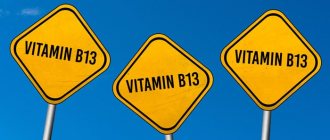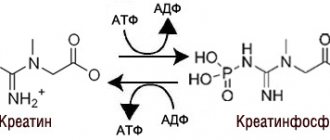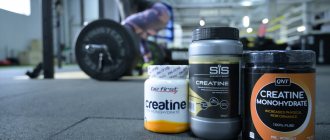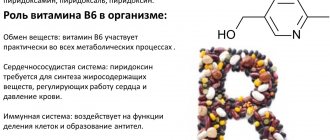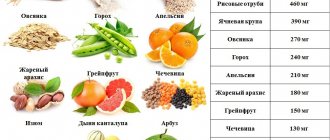In the wake of the general passion for sports, fitness and slimness, women have become much more active in monitoring their nutrition and general health. They delve into the intricacies of dietary nutrition, paying a lot of attention to the correct selection of ingredients for a healthy menu. Sports nutrition for women plays a very important role in the formation of a beautiful and fit figure during active fitness.
What is protein?
So, many people still consider protein to be an ordinary “chemical”, which is far from natural products in quality. And here is the first and main mistake. This type of sports nutrition is completely natural. The protein obtained from a can is no different from that which the body struggles to obtain from milk or, for example, chicken breast. Although no, there is still a difference; protein in powder form is often healthier and more effective than the same meat products. These are not just words. For example, when consuming meat, the body:
- absorbs only 20-30% of protein, no more;
- in addition to everything else, it receives carbohydrates, fats and other components (not always needed by the body);
- spends a lot of time and energy on digesting and assimilating food.
Again, food is necessary for the body and taking sports nutrition should not cause a refusal or change in the usual diet. But there are times when protein is still worth drinking.
What types are there?
It is important to remember that protein in sports nutrition is very diverse in its production methods, quality and properties. So, today there are two main categories of proteins:
- “fast” - absorbed by the body within just 20-40 minutes. Their advantage is the effective nutrition of muscle fibers with a full complex of amino acids. These proteins include all types of whey protein - isolate, concentrate and hydrolysate;
- “slow” - absorbed much more slowly, over several hours. But in the future they nourish the muscles with amino acids for a long time and prevent the processes of catabolism. These proteins include soy protein, casein, egg white and a number of other types.
What is the best protein for a beginner?
In fact, the protein scheme is the same everywhere and is equal for athletes of all fitness levels. Every day the body needs two types of proteins - those that are absorbed instantly, and those that are absorbed over several hours. Among the variety of protein types, whey and casein are considered the best according to these criteria.
Whey Protein
Extracted from raw milk, whey is the most common form of protein powder. During the production of cheese from milk, elements are added that allow the separation of raw milk. Approximately 20% of the total mass of raw cow's milk is whey protein, which is separated during separation, pasteurized and converted into powder form. For whey protein filtration, microfiltration and ion exchange method are the main methods.
Three-phase milk purification technology to obtain whey protein
Why is it needed?
Whey protein is an ideal, quickly digestible source of complete protein. Ideal for filling the body with amino acids in a short time, for example early in the morning or immediately after training.
Advantages
- Whey protein is rich in branched chain amino acids (BCAAs) - leucine, valine and isoleucine, which play a key role in the production of muscle protein (i.e. muscles).
- Very high biological value
- Typically has a rich, creamy flavor
Flaws
- People with a dairy allergy or other lactose intolerance may have some difficulty digesting whey protein, so it may not be an ideal source of protein for these people. Adding digestive enzymes to your protein shaker can help with this.
- Most of its forms are absorbed within one hour of consumption, making it not the best food for maintaining satiety or providing a continuous supply of amino acids to the body.
Types of Whey Protein
Whey protein concentrate: contains from 70% to 80% protein, as well as substances such as immunoglobulins, lactoferrin, conjugated linoleic acid, lactose, bioactive lipids, minerals. So, while whey concentrates contain less protein per gram than isolates, they contain many other health and immune-boosting components that shouldn't be overlooked.
Whey Protein Isolate: The purest, most filtered form of whey protein, containing 90% to 95% protein. Very low in fat and also typically contains only trace amounts of lactose.
Whey Protein Hydrolyzate: This form is made to look like whey from the intact protein residues when they are broken down into smaller peptides by separation. They are absorbed and digested a little faster than isolate. Hydrolyzed whey has a more bitter taste compared to other types of whey protein.
New Zealand whey protein: considered by many to be at the very top of the rankings, it is of the highest quality due to special processing and extraction. New Zealand dairy farms are renowned for adhering to the world's strictest quality standards, guaranteed to be free of antibiotics, hormones and chemical preservatives. In addition, all cows must eat fresh grass.
New Zealand whey protein has the highest biological value because it contains all essential amino acids in sufficient quantities
Micellar Whey: A unique form of protein that releases slowly into the body. It has all the benefits of whey protein (all the amino acids) plus the benefit of slow release protein. This makes it ideal for consumption in the evening before bed.
Vegetarian protein
A plant-based protein that has been gaining popularity lately. The composition is entirely based on plant-based protein. Appeared as an alternative to whey protein. Although most plant proteins are considered “incomplete” (lacking key amino acids), if you combine them all into one mixture, you can create a complete protein powder, which is what many protein companies do.
Why is it needed?
- This product is made for those who practice vegetarianism or for those who suffer from lactose intolerance (or allergies of any kind to dairy products).
Advantages
- Consumers of vegetarian protein report that it is less taxing on the digestive tract than dairy (whey) or other protein sources (egg or meat).
- Facilitates a vegetarian diet with a full range of proteins
Flaws
- Not everyone likes the vegetarian taste of such proteins.
- Mixability is an issue for some brands and isolate quality is not always possible
- Average biological value compared to whey protein
Meat protein
For the true carnivore, there is also meat protein powder, which is another alternative for those intolerant to dairy products, and also has a complete set of amino acids, no different in composition from a freshly cooked juicy steak.
Some consumers are confident that this type of protein is more conducive to building muscle mass than plant or milk proteins.
Why is it needed?
Ideal for those on a paleo diet or those with dairy allergies looking for a worthy replacement for dairy proteins. Typically used as a time-release product to help build muscle and speed recovery after strength training and other fitness activities.
Advantages
- Promotes long-lasting feelings of fullness compared to whey protein
- Helps you get all the benefits of beef protein without cooking the meat
Flaws
- Has a unique taste, coffee-like or caramel-like, which may be off-putting for people who have been consuming whey protein.
- Some brands don't mix as easily as whey protein
Egg protein
Another good lactose-free product is egg white protein powder. Egg whites are a complete, self-sufficient product containing all essential amino acids. Well accepted by most diets. It is also low in calories, free of fat, and provides moderate digestion rates.
Why is it needed?
Egg protein is best consumed in the morning or evening, when you want to ensure the longest possible supply of amino acids to your muscles. Those who are lactose intolerant or don't like the taste of vegetarian or meat proteins may discover that egg protein is an excellent alternative to whey.
Advantages
- Easy to mix
- No fat and low calories
- Contains vitamins A.B, D and E
Flaws
- May not be the best protein to consume post-workout due to slow amino acid absorption
- There is a potential risk of salmonella contamination if preparation standards are not followed
Casein or calcium caseinate
A similar protein to whey, casein is also extracted from milk when making cheese. If 20% of fresh cow's milk is whey, then the remaining 80% is casein. Casein is extracted in a similar manner to whey. It is then converted into powder through drying. It is a very slowly digestible protein that, when mixed with liquid, forms tiny clusters called micelles.
Calcium caseinate is extracted from casein and is considered by many to be interchangeable with other proteins.
Casein is a complex protein formed during the curdling of milk.
Why is it needed?
Casein is an excellent choice when slow digestion of protein is needed, such as before bed. It provides a constant flow of amino acids to your muscles while you sleep.
Advantages
- Great taste with a thick creamy texture
- Slower digestion of protein helps keep those on a diet feeling fuller longer
- It is known to have anti-catabolic effects when consumed – maintaining nitrogen muscle balance.
Flaws
- Casein has a slightly higher amount of lactose, which can cause digestive problems for people with dairy allergies
- Lacks anabolic effect compared to whey protein due to low BCAA content
Soy protein
Soy protein is by no means new to the protein powder group. Typically contains up to 90% pure protein. In the world of plant proteins, it is considered a heavyweight because only it has a complete set of amino acids.
Why is it needed?
Great for people who are lactose intolerant and those on a vegetarian diet.
Advantages
- Soy is a complete protein and contains all essential amino acids
Flaws
- Contains phytoestrogens and thus can provoke various undesirable reactions in addicted people.
I hope that this article will help you choose the right protein for novice consumers and avoid unnecessary mistakes. Think carefully about choosing a protein based on your goals, specific needs and lifestyle. If you have any doubts, consult a fitness instructor or nutritionist about which powder to choose.
If you are seriously planning to play sports, you should immediately think about purchasing sports nutrition. And first of all, it is very important to stock up on protein mixtures. But which protein is best for beginner athletes and how to choose it correctly?
Who needs protein?
We still haven’t answered the question of who should drink protein. Here the answer will be clear - everyone. But this sports nutrition is only necessary for athletes? - Not at all. Getting a full serving of protein from food is extremely difficult. The optimal dosage for a person who is not involved in sports is about one gram of protein per kilogram of weight, and for a bodybuilder - 2-2.5 grams. The result is some serious numbers. For example, a 100-kilogram athlete needs from 200 to 250 grams of pure protein per day. To get it, you need to pass through a huge amount of food, which (in addition to the protein itself) will “give” a lot of fats and carbohydrates. As a result, the effect of increasing muscle mass will be minimal, but fat will definitely appear.
Thus, protein is worth drinking in a number of cases:
- to normalize protein levels in the body;
- to improve training efficiency and increase strength;
- for effective muscle mass gain;
- to burn excess fat and gain body definition;
- to stop the destructive processes of catabolism.
We talk so much about the importance of protein, but we have not noted the dangers of its lack. Here are some of the most important side effects:
- The process of skin aging begins, the elasticity and strength of the skin decreases;
- if protein does not come from outside, the body will look for protein within itself, literally “devouring” its own muscle fibers and organs;
- lack of protein can be a consequence of hormonal imbalance, liver disease, malfunction of the endocrine glands, and so on;
- To protect hair from loss and nails from peeling, you should drink protein not only during active sports, but also when losing weight.
Protein and women
Taking protein in supplement form has been a trend, especially among male bodybuilders . This was the fact that many women avoided proteins because of the fear of accumulating unwanted muscle mass . In fact, a woman's body does not produce enough testosterone like a man. It is this hormone that ensures the growth of muscles and hair in men. However, protein powder is essentially a protein-rich food that serves as a dietary supplement. Women cannot gain as much muscle mass as men by consuming protein, so don't worry about taking protein drinks. [12]
At the same time, it is important to understand that there is no such thing as protein for women . The protein is the same in both male and female bodies. Therefore, if you find a protein product that is exclusively suitable for women, it is based on whey, casein or plant proteins, as well as protein for men. However, special protein products for women may have an individual composition that is beneficial for the female body. Therefore, you should pay attention to the ingredients on the packaging label . Some of them can be tailored for women who want to lose weight and therefore contain green tea extract, L-carnitine or other fat burners . Advantageously, protein powders for women are also enriched with minerals and vitamins such as vitamin B6 and vitamin E, which are important for the female body. [2]
Advantages and disadvantages
To know for sure whether it is worth taking protein, we must know all its pros and cons. Let's look at them in more detail.
Protein benefits:
- it promotes rapid growth of muscle mass and achievement of maximum athletic results (this is extremely important for athletes);
- digests faster than regular proteins, provides the body with a full range of amino acids and nutrients;
- does not burden the gastrointestinal tract;
- contains exclusively protein without large amounts of carbohydrates and fats;
- stops negative catabolic processes;
- Athletes should drink protein to increase their endurance, strength and energy.
To be fair, we note some negative features and contraindications of protein:
- Some types of protein containing lactose can cause eating disorders. To avoid this phenomenon, you should drink supplements that do not contain this component (for example, whey protein isolate or hydrolyzate);
- Exceeding the dosage of protein more than usual loads the liver and kidneys. Therefore, if there are serious problems with these organs, it is better to limit the intake of sports nutrition;
- soy protein should not be abused by men due to the content of female hormones, which can lead to a decrease in testosterone and the appearance of excess fat;
- Unfortunately, not all supplements yet taste good.
How should girls drink protein?
The main goal of a good diet is to reduce body fat, but not muscle mass. Accordingly, the layer decreases due to a decrease in the intake of carbohydrates and animal fats, as well as an increase in protein consumption. What exactly is protein for?
So, how should you consume protein?
First you need to calculate how many grams of protein you need to maintain muscle fibers in tone. The norm is 1.5-2 g per kilogram of body per day.
Now, from this consumption, you can determine the exact weight of protein that needs to be consumed per day and divide it into 3-4 times between meals. Fractional consumption of food and sports supplements works more effectively. This is due to the satisfaction of hunger (especially when reducing carbohydrates) and a constant, uniform supply of energy and necessary substances to the body.
You can make protein shakes using juice, milk or water. However, it is still recommended to use only water for dilution. Since juices and milk have their own calorie content.
It must be remembered that a protein shake will never replace a full meal. This sports supplement should serve as a supplement to your main diet.
Now we know what protein is, why a girl needs it, and how to take it correctly. There is one last important question left.


